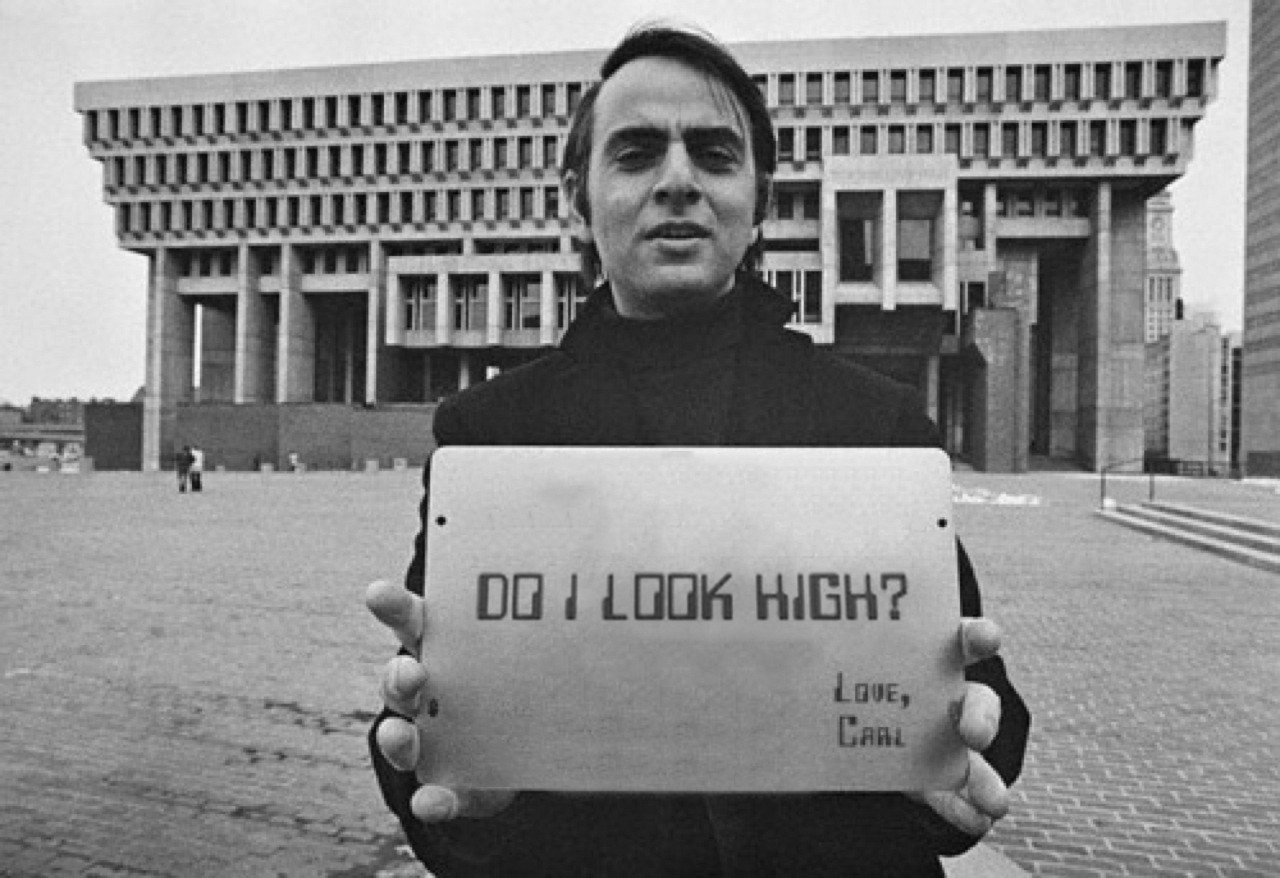Avoidable human misery is more often caused not so much by stupidity as by ignorance, particularly our ignorance about ourselves… Whenever our ethnic or national prejudices are aroused, in times of scarcity, during challenges to national self-esteem or nerve, when we agonize about our diminished cosmic place and purpose, or when fanaticism is bubbling up around us — then, habits of thought familiar from ages past reach for the controls.
There is much that science doesn’t understand, many mysteries still to be resolved.
In a Universe tens of billions of light-years across and some ten or fifteen billion years old, this may be the case forever.[…]
Science is far from a perfect instrument of knowledge. It’s just the best we have. In this respect, as in many others, it’s like democracy. Science by itself cannot advocate courses of human action, but it can certainly illuminate the possible consequences of alternative courses of action.
The scientific way of thinking is at once imaginative and disciplined. This is central to its success. Science invites us to let the facts in, even when they don’t conform to our preconceptions. It counsels us to carry alternative hypotheses in our heads and see which best fit the facts. It urges on us a delicate balance between no-holds-barred openness to new ideas, however heretical, and the most rigorous skeptical scrutiny of everything — new ideas and established wisdom. This kind of thinking is also an essential tool for a democracy in an age of change.
Humans may crave absolute certainty; they may aspire to it; they may pretend, as partisans of certain religions do, to have attained it. But the history of science — by far the most successful claim to knowledge accessible to humans — teaches that the most we can hope for is successive improvement in our understanding, learning from our mistakes, an asymptotic approach to the Universe, but with the proviso that absolute certainty will always elude us.
We will always be mired in error. The most each generation can hope for is to reduce the error bars a little, and to add to the body of data to which error bars apply. The error bar is a pervasive, visible self-assessment of the reliability of our knowledge.
The reason science works so well is partly that built-in error-correcting machinery. There are no forbidden questions in science, no matters too sensitive or delicate to be probed, no sacred truths. That openness to new ideas, combined with the most rigorous, skeptical scrutiny of all ideas, sifts the wheat from the chaff. It makes no difference how smart, august, or beloved you are. You must prove your case in the face of determined, expert criticism. Diversity and debate are valued. Opinions are encouraged to contend — substantively and in depth.
[…]
Science is part and parcel humility. Scientists do not seek to impose their needs and wants on Nature, but instead humbly interrogate Nature and take seriously what they find. We are aware that revered scientists have been wrong. We understand human imperfection. We insist on independent and — to the extent possible — quantitative verification of proposed tenets of belief. We are constantly prodding, challenging, seeking contradictions or small, persistent residual errors, proposing alternative explanations, encouraging heresy. We give our highest rewards to those who convincingly disprove established beliefs.
Valid criticism does you a favor.Science is a way to call the bluff of those who only pretend to knowledge. It is a bulwark against mysticism, against superstition, against religion misapplied to where it has no business being. If we’re true to its values, it can tell us when we’re being lied to. It provides a mid-course correction to our mistakes.
[…]
Finding the occasional straw of truth awash in a great ocean of confusion and bamboozle requires vigilance, dedication, and courage. But if we don’t practice these tough habits of thought, we cannot hope to solve the truly serious problems that face us.
The Demon-Haunted World: Science as a Candle in the Dark Paperback- Carl Sagan
The scientific way of thinking is at once imaginative and disciplined

Data di pubblicazione: by
